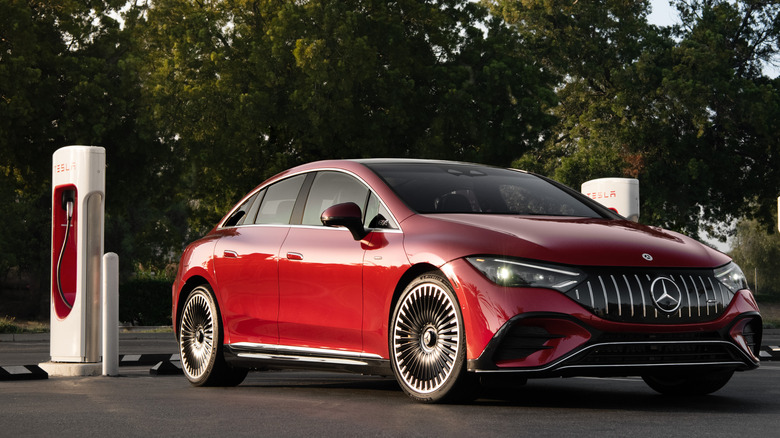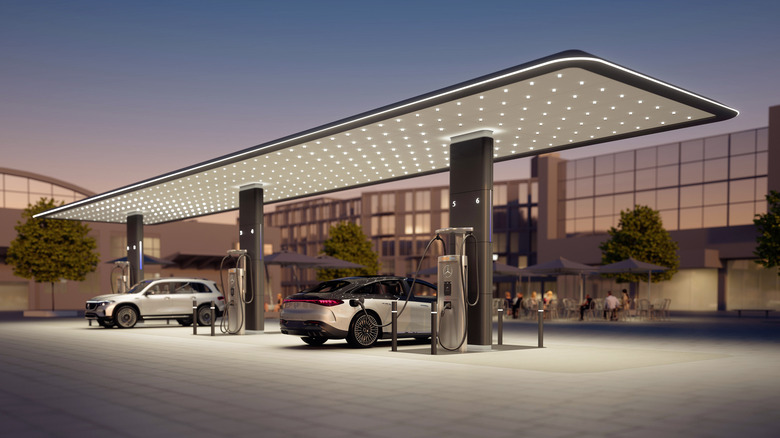Mercedes Joins The Tesla EV Plug Party With 2024 Supercharger Access
Multiple manufacturers have started to adopt Tesla's North American Charging Standard (NACS), and Mercedes-Benz has just added its name to the list. According to a Mercedes press release, the company will start equipping its future electric vehicles with NACS ports in 2025, with the ability to access Tesla's Supercharger network through an adaptor as early as next year.
Additionally, Mercedes is implementing its own high-speed charging network and wants to create 2,500 chargers in North America by 2030. The automaker wants to get that process started with the first station by the end of this year. Mercedes-Benz notes that its charging stations will be open to all brands and will utilize both the existing CCS plug that's featured on most electric vehicles and the NACS plug that Tesla pioneered.
While the ability to access Tesla Superchargers will certainly be convenient and ease some of the range anxiety that comes with EV ownership, the real game here is that Mercedes is adding the NACS plug for its own charging network.
High power charging for everyone
Ola Källenius, the Chairman of the Board of Management at Mercedes-Benz Group says in the press release: "Our strategic priority is clear: Building the world's most desirable cars. To accelerate the shift to electric vehicles, we are dedicated to elevating the entire EV experience for our customers – including fast, convenient, and reliable charging solutions wherever their Mercedes-Benz takes them. That's why we are committed to building our global Mercedes-Benz High-Power Charging Network, with the first sites opening this year. In parallel, we are also implementing NACS in our vehicles, allowing drivers to access an expansive network of high-quality charging offerings in North America."
Mercedes-Benz is one of the oldest automakers around, with its history dating back to the late 1800s, if any company can build a charging network to dethrone Tesla, it could very well be Mercedes. Seemingly this new competition won't have much of a downside for customers, as they will be able to use whatever charging network they desire in the coming years.

